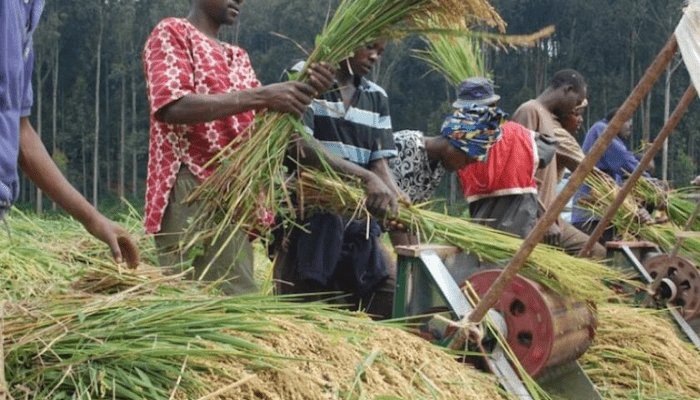As climate change threatens the national economy, Enugu State is spearheading a revolution in Nigerian farming.
It’s begun insuring thousands of smallholder farmers against unpredictable climate shocks.
Over 9,000 farmers have been covered under this insurance programme, which is a collaboration involving several stakeholders, including the Enugu State Government, the Presidential Food Systems Coordinating Unit (PFSCU), the Harvesting Hope Caravan (HHC) and Pula Advisors.
By shielding farmers from unexpected losses, the initiative also establishes agriculture as a viable business rather than a gamble with nature.
Across Nigeria, irregular rainfall, flooding, and infestations have blighted harvests, causing farmers to abandon their farmland, thereby increasing the cost of food.
Enugu’s recent policy intervention offers a safety net for its farmers — turning risk into security and risk into opportunity.
The insurance package, supported by data-analytical tools, provides compensation in the case of loss caused by weather-related factors, helping farmers to bounce back quickly and invest in the next planting season.
But more benefits are at play. The scheme forms part of the larger agricultural reforms, such as the Enugu Agricultural Farmland Bank, which manages over 130,000 hectares of land to help boost commercial farming and access to farmland.
The scheme also connects smallholders with cooperatives and extension services, ensuring that insurance coverage works hand-in-hand with input support, training and guaranteed market access.
By combining these elements, Enugu is gradually developing a template towards sustainable agriculture that puts the farmer at the very center of policy design.
Across Nigeria, insurance schemes have wrought profound impacts. The NAIC scheme, for example, has been linked with higher farm incomes in Kaduna State.
During the 2023 wet season, 1,138 smallholder ginger farmers in Kaduna received ₦110 million in insurance claims under the “Naija Unlock Signature Programme” after crop losses.
The “Pay at Harvest” crop insurance Initiative, recently piloted by Leadway Assurance and the Alliance for a Green Revolution in Africa, covers over 21,000 smallholder farmers across Kaduna, Nasarawa and Niger States.
The scheme allows farmers to defer and pay premiums after selling their harvest, freeing them from financial pressure during cultivation while insulating them from loss caused by floods, drought or pests.
Enugu’s agro intervention is, perhaps, unique for being inclusive. Women and youth are fully covered.
What’s more, the programme rebuilds the fraught relationship between the government and local farmers, restoring public trust in national policies.
With only 3-5% of Nigerian smallholder farmers currently under agricultural insurance—and millions more exposed to climate shocks and crop loss—scaling up models like Enugu’s can be transformative for food security in the country.
For farmers, the assurance that their investment will not be swept away by the next flood means that they can focus on boosting their yields rather than merely eking out a living.
As Nigeria strives towards food independence, initiatives like Enugu’s agro-insurance scheme demonstrate that the solutions do not have to be complicated.
Summary not available at this time.






